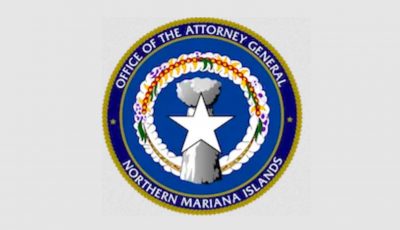Managing debt
THE CONSUMER CAUTION CORNER
This week, the Office of the Attorney General’s “Consumer Caution Corner” outlines the Federal Trade Commission’s guidance on how to manage debt.
If you owe money you cannot repay, you need a plan. Do not ignore the problem. There are people who can help you.
Where do I start?
• Step #1: Make a budget.
• Write down what you make and spend in a month
• Look at where your money goes
• Look for ways to save money
• Step #2: Call the companies where you owe money.
• Explain why you have trouble paying the bill
• Ask for a plan to let you pay less each month
• Step #3: Get help from a credit counselor.
How can I get help?
Look for a credit counselor who will meet you in-person. Then ask questions. These questions will help you select a counselor:
• • What can you do to help me?
• • How much will I have to pay?
• • Do you have free education and information?
• • Are you licensed to work in my territory and/or state?
Look for a credit counselor who can do the most for you. You might have to pay some money for help. But a good credit counselor will not ask you to pay in advance.
What do I do about calls from debt collectors?
• When you talk to a debt collector:
• Keep a notebook by your phone or with you.
• Ask: What is your name, company, address, and phone number? Write the answers. Write the date and time you talked.
• Say: I will only talk when I get the written validation notice.
• If the collector threatens you or uses bad language, hang up. He or she is breaking the law.
• You can file a complaint about a debt collector by calling the Federal Trade Commission at 1-877-382-4357.
• When you get the validation notice:
• See if you recognize the debt. The notice should list the “creditor.” The creditor is the person you owe money to. You can call the creditor to get more information.
• If you do not think the debt is yours, follow the instructions in the notice. It should tell you what to do next to question the debt.
• If the debt is yours, make a plan for how to pay it. Talk to a credit counselor.
• If you want the collector to stop calling:
• Write a letter to the debt collector. Tell him or her to stop calling you immediately. Send the letter by Certified Mail and ask for a “return receipt.” The law says he or she must stop calling you when he or she gets your request in writing.
• If that debt collector still calls, file a complaint. Call the Federal Trade Commission at 1-877-382-4357.
Each week, the OAG’s Consumer Protection Education Program (a.k.a. “The Consumer Caution Corner”) shares FTC and/or Federal Communications Commission publications that provide consumers and businesses with the “know-how” to identify and protect themselves from unfair trade practices and marketplace schemes. If you would like to file a consumer complaint, please pick up a form at the OAG (on Capital Hill) or request one by email from consumer_counsel@cnmioag.org. After completing the consumer complaint, please submit it by email or in-person.
We cannot act as your private attorney. If you need legal assistance, we will recommend that you contact a private attorney or legal aid organization. We cannot give legal advice or act as your private attorney. Michael J. Cyganek (Consumer Counsel, Office of the Attorney General)
Michael J. Cyganek is consumer counsel at the Office of the Attorney General.



























